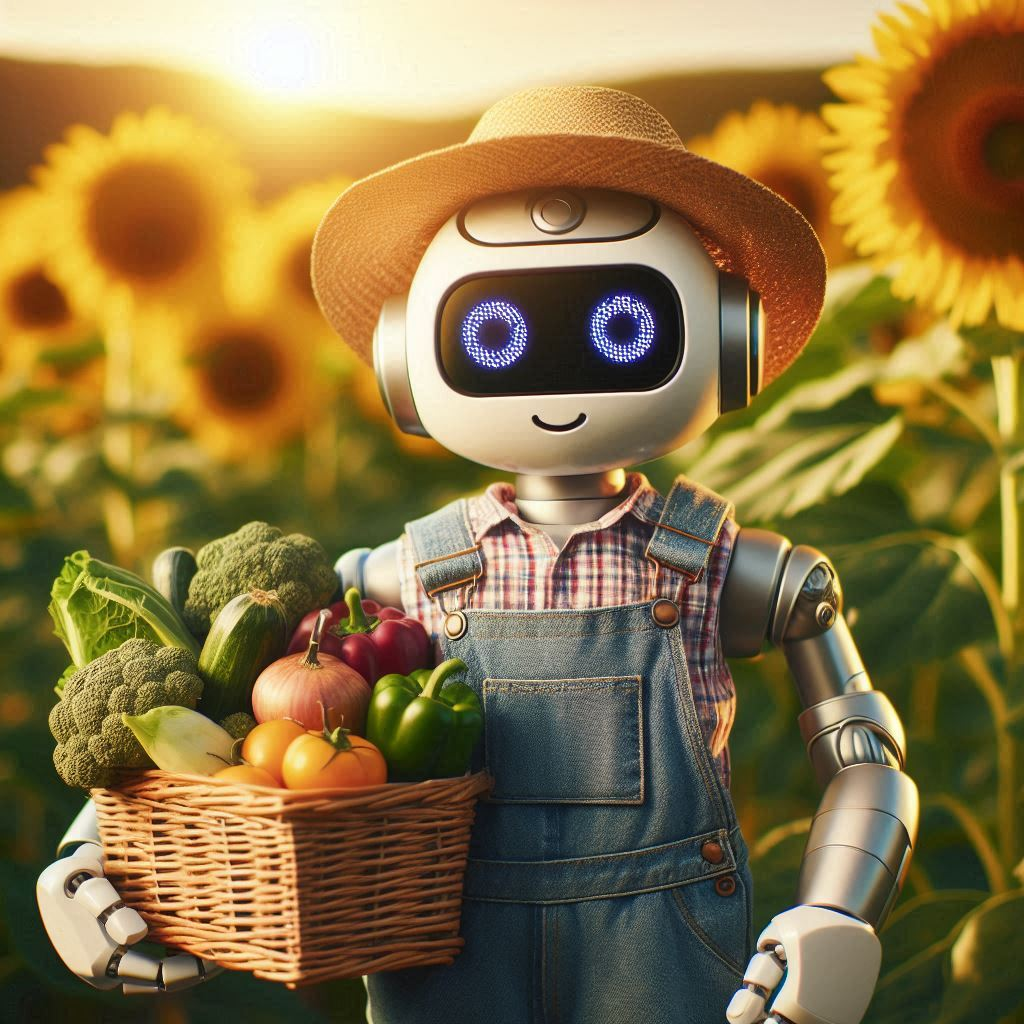
Artificial Intelligence (AI) is reshaping the agricultural industry, offering farmers innovative tools and technologies to optimize crop yields, improve resource efficiency, and mitigate environmental impact. From precision farming and predictive analytics to automated harvesting and crop monitoring, AI-powered solutions enable farmers to make data-driven decisions and enhance productivity sustainably. Here’s how AI is transforming agriculture and empowering farmers with advanced tools:
AI-powered precision farming systems integrate IoT sensors, satellite imagery, and weather data to monitor soil conditions, crop health, and environmental factors in real-time. Farmers can use AI-driven analytics to optimize irrigation schedules, apply fertilizers more efficiently, and detect early signs of pests or diseases, maximizing crop yields while conserving resources.
AI algorithms analyze aerial imagery and drone data to assess crop health, identify nutrient deficiencies, and predict yield outcomes. Farmers can use AI-powered crop monitoring tools to monitor field conditions remotely, make timely interventions, and optimize agricultural practices for sustainable production and profitability.
AI-powered predictive analytics models forecast weather patterns, market trends, and commodity prices to help farmers make informed decisions about planting schedules, crop rotations, and market timing. By leveraging AI-driven insights, farmers can mitigate risks, optimize resource allocation, and capitalize on market opportunities for increased profitability.
AI-enabled autonomous vehicles and robotic systems perform tasks such as planting, spraying pesticides, and harvesting crops with precision and efficiency. Farmers can deploy AI-driven machinery to reduce labor costs, minimize human error, and operate farms more sustainably while improving overall farm management practices.
AI-powered sensors and wearable devices monitor livestock health metrics, detect anomalies, and provide early warnings of potential diseases. Farmers can use AI-driven livestock management tools to optimize feeding schedules, track animal behavior patterns, and ensure the well-being of livestock, enhancing animal welfare and productivity on the farm.
AI technologies optimize logistics and supply chain operations by analyzing transportation routes, inventory levels, and demand forecasts. Farmers can use AI-driven supply chain management tools to reduce transportation costs, minimize food waste, and ensure timely delivery of agricultural products to markets and consumers.
AI-driven environmental monitoring tools assess the impact of agricultural practices on soil health, water usage, and biodiversity. Farmers can implement AI-powered sustainability initiatives to adopt regenerative farming practices, reduce carbon footprints, and preserve natural resources for future generations.
By embracing AI technologies in agriculture, farmers can enhance productivity, sustainability, and resilience in the face of evolving challenges such as climate change and global food security. AI-powered solutions empower farmers to optimize agricultural practices, improve decision-making, and achieve economic success while promoting environmental stewardship.
FAQ’s
1. How does AI enhance precision farming with IoT sensors? AI-powered precision farming systems use IoT sensors, satellite imagery, and weather data to monitor soil conditions, crop health, and environmental factors. Farmers use AI-driven analytics to optimize irrigation, apply fertilizers efficiently, and detect pests or diseases early, maximizing yields and conserving resources.
2. What benefits does AI offer for crop monitoring and management? AI algorithms analyze aerial imagery and drone data to assess crop health and predict yields. Farmers use AI-powered tools to monitor field conditions remotely, make timely interventions, and optimize agricultural practices for sustainable production and profitability.
3. How can AI improve predictive analytics for weather and market trends? AI-powered models forecast weather patterns, market trends, and commodity prices to aid decision-making. Farmers leverage AI-driven insights to optimize planting schedules, crop rotations, and market timing, mitigating risks and capitalizing on market opportunities for increased profitability.
4. What role does AI play in autonomous farming machinery? AI-enabled autonomous vehicles and robotic systems handle tasks like planting, spraying, and harvesting with precision. Farmers deploy AI-driven machinery to reduce labor costs, minimize human error, and operate more sustainably, improving overall farm management practices.
5. How does AI assist with livestock monitoring and health management? AI-powered sensors and wearable devices monitor livestock health metrics and detect anomalies. Farmers use AI-driven tools to optimize feeding schedules, track animal behavior, and ensure livestock well-being, enhancing animal welfare and farm productivity.
6. How can AI optimize supply chain operations in agriculture? AI technologies analyze transportation routes, inventory levels, and demand forecasts to optimize logistics. Farmers use AI-driven supply chain tools to reduce transportation costs, minimize food waste, and ensure timely delivery of agricultural products to markets and consumers.
7. What are the benefits of AI for environmental sustainability and conservation? AI-driven tools assess the impact of agricultural practices on soil health, water usage, and biodiversity. Farmers implement AI-powered initiatives to adopt regenerative farming practices, reduce carbon footprints, and preserve natural resources for future generations.